Find Help
More Items From Ergsy search
-

Symptoms of irritable bowel syndrome (IBS)
Relevance: 100%
-

Symptoms of irritable bowel syndrome (IBS)
Relevance: 87%
-

What is irritable bowel syndrome (IBS)?
Relevance: 86%
-
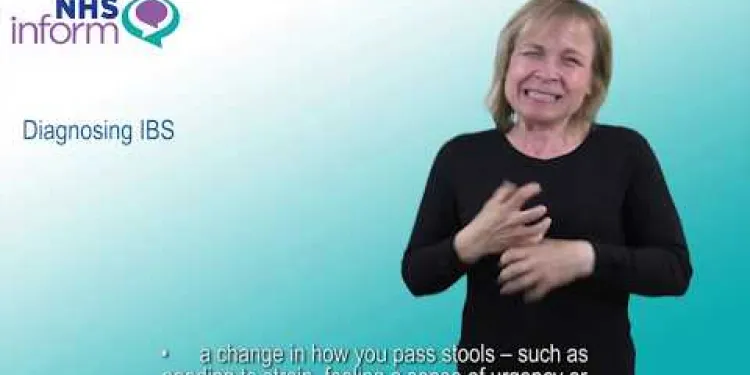
Diagnosing irritable bowel syndrome (IBS)
Relevance: 86%
-
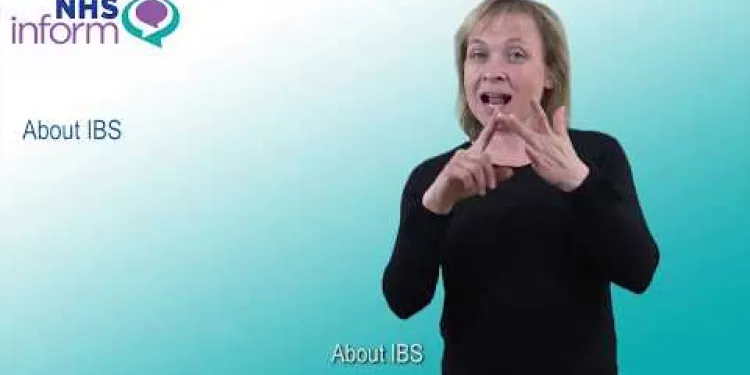
About irritable bowel syndrome (IBS)
Relevance: 86%
-
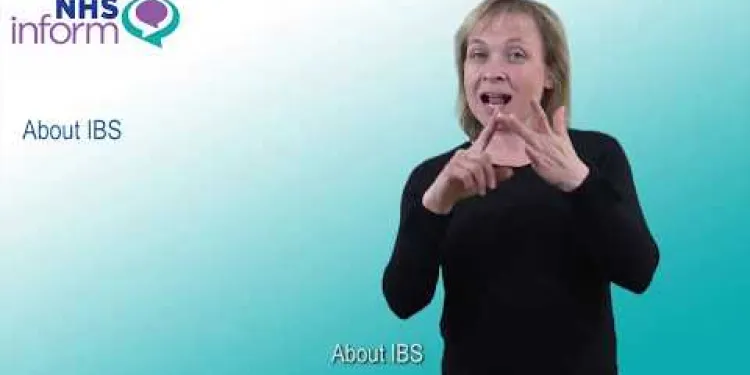
About irritable bowel syndrome (IBS)
Relevance: 85%
-

What is irritable bowel syndrome (IBS)?
Relevance: 85%
-
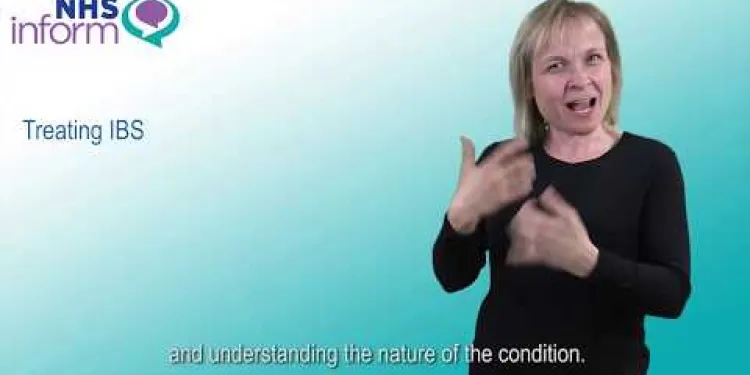
Treating irritable bowel syndrome (IBS)
Relevance: 82%
-

Causes of irritable bowel syndrome (IBS)
Relevance: 82%
-

Causes of irritable bowel syndrome (IBS)
Relevance: 80%
-
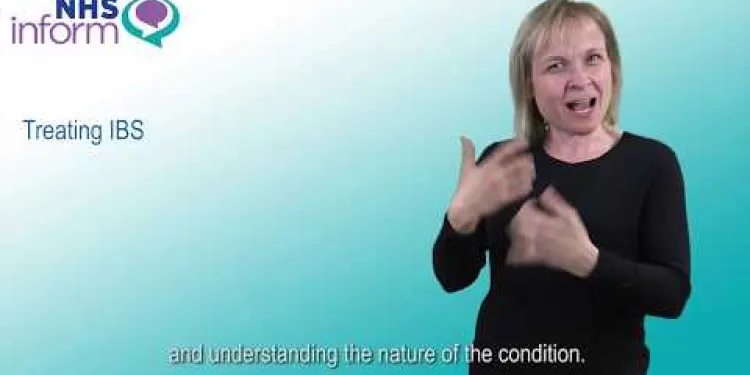
Treating irritable bowel syndrome (IBS)
Relevance: 77%
-

Bowel cancer - Symptoms and signs to look out for
Relevance: 46%
-
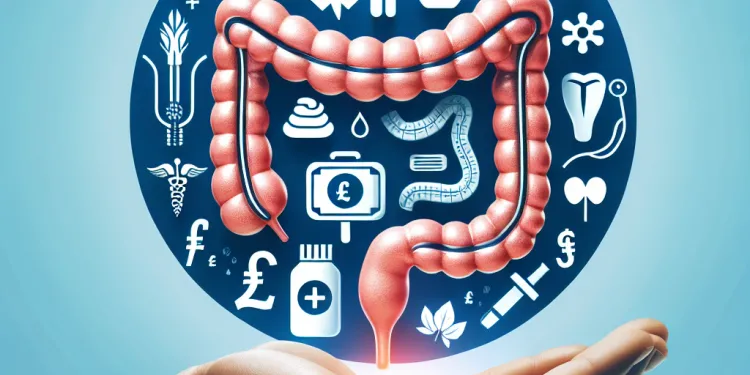
What are the side effects of bowel cancer treatment?
Relevance: 42%
-

What are the common symptoms of Carpal Tunnel Syndrome?
Relevance: 41%
-

Why is there a surge in bowel cancer?
Relevance: 40%
-

What is Bowel Cancer?
Relevance: 39%
-
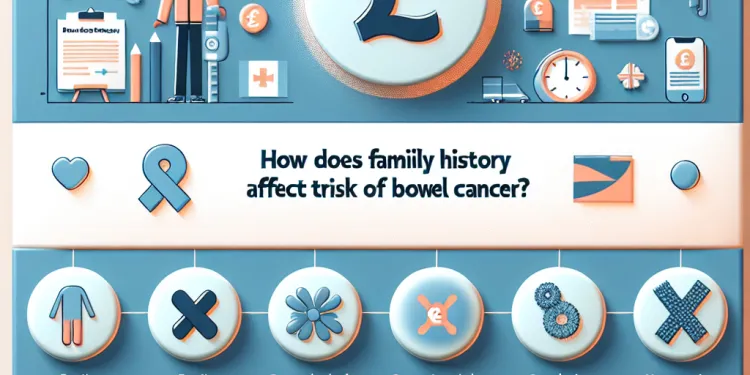
How does family history affect the risk of bowel cancer?
Relevance: 39%
-

Taking a Genetic Family History - The Conversation (Bowel Cancer)
Relevance: 39%
-

What are the risk factors for bowel cancer?
Relevance: 39%
-
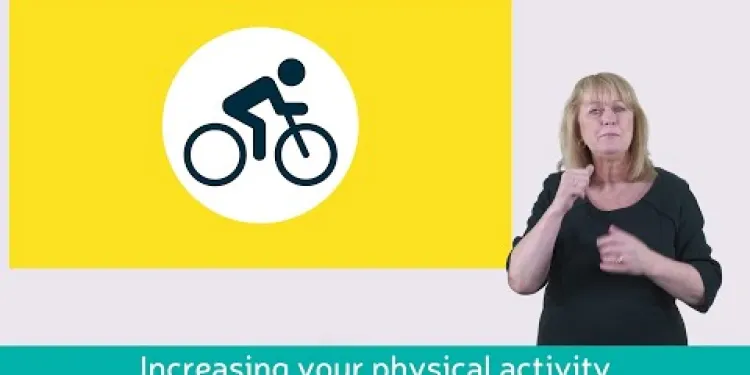
Learn about bowel cancer (British Sign Language version)
Relevance: 38%
-

Exercises for sciatica: piriformis syndrome | NHS
Relevance: 38%
-
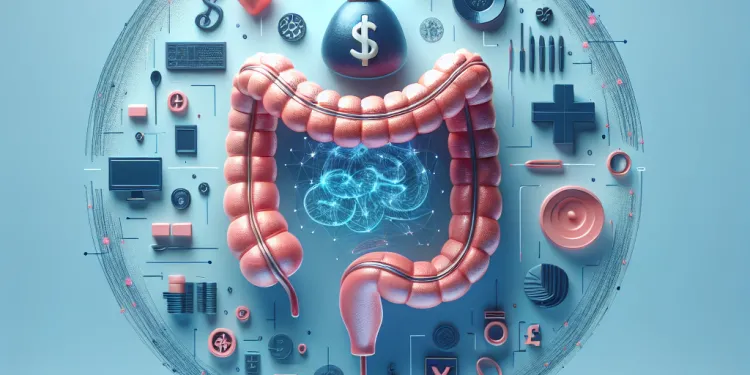
How common is bowel cancer?
Relevance: 37%
-

What is Cushing's syndrome?
Relevance: 36%
-

Prader-Willi Syndrome | NHS
Relevance: 36%
-
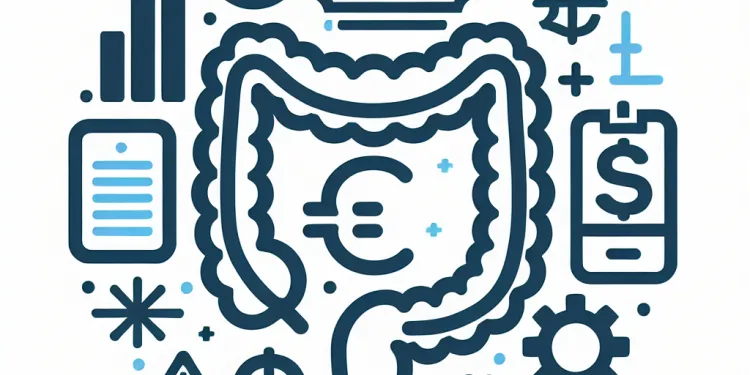
How is bowel cancer diagnosed?
Relevance: 36%
-

Munchausen's syndrome | NHS
Relevance: 35%
-

Carpal Tunnel Syndrome
Relevance: 35%
-

Are younger people being diagnosed with bowel cancer more frequently?
Relevance: 35%
-

Is chronic fatigue syndrome contagious?
Relevance: 34%
-

Can bowel cancer be prevented?
Relevance: 34%
-

Can bowel cancer spread to other parts of the body?
Relevance: 33%
-

Turner syndrome: Beyond the classic XO phenotype
Relevance: 33%
-
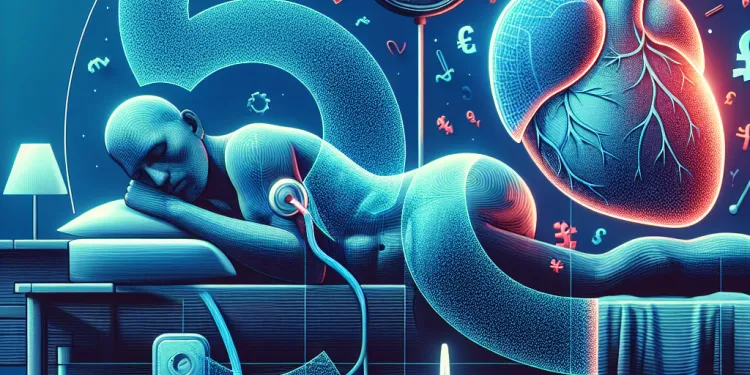
What is complex sleep apnea syndrome?
Relevance: 33%
-

IBS and your mind: Is there a connection?
Relevance: 33%
-

IBS and your mind: Is there a connection?
Relevance: 33%
-

How is Carpal Tunnel Syndrome diagnosed?
Relevance: 33%
-

What is chronic fatigue syndrome?
Relevance: 32%
-

Bowel cancer screening: Alan Titchmarsh and Tommy Walsh | NHS
Relevance: 32%
-

Are there any alternative treatments for Carpal Tunnel Syndrome?
Relevance: 32%
-

What is the survival rate for bowel cancer?
Relevance: 32%
Symptoms of Irritable Bowel Syndrome (IBS)
Introduction to IBS Symptoms
Irritable Bowel Syndrome (IBS) is a common digestive condition that affects many individuals in the United Kingdom. Understanding the symptoms is crucial for managing this condition effectively and seeking appropriate medical advice. Here we delve into the key symptoms associated with IBS.
Abdominal Pain and Cramping
One of the most prevalent symptoms of IBS is abdominal pain and cramping. This discomfort often stems from the colon but can be felt throughout the abdomen. The intensity and location of the pain can vary, often improving after a bowel movement or passing gas.
Bloating and Swelling
Many individuals with IBS experience bloating and swelling in the abdomen. This is often described as a feeling of fullness or tightness, and it can be particularly pronounced after meals. Bloating can contribute to a sense of physical discomfort and may be alleviated by dietary adjustments.
Changes in Bowel Habits
IBS often causes significant alterations in bowel habits. These can include constipation, diarrhoea, or a combination of both. Individuals may notice changes in stool consistency, frequency, and appearance, and these symptoms can fluctuate over time.
Gas and Flatulence
Excessive gas and flatulence are also common symptoms of IBS. The increased production of gas in the digestive tract can lead to discomfort, belching, and the need to pass gas more frequently. Managing diet can often help mitigate these symptoms.
Fatigue and Tiredness
IBS can also be associated with fatigue and a general sense of tiredness. This fatigue can be related to disrupted sleep due to abdominal discomfort and the overall strain on the body from persistent symptoms.
Mucus in Stool
Some individuals with IBS may notice mucus in their stools. This can be a clear or white substance produced by the intestines and is often a sign of inflammation or irritation within the digestive tract.
Conclusion
Recognising the symptoms of IBS is essential for managing the condition effectively. If you are experiencing any of these symptoms, it is advisable to consult with a healthcare professional in the UK for a proper diagnosis and appropriate treatment plan. Through lifestyle and dietary changes, many individuals with IBS can find relief and improve their quality of life.
Symptoms of Irritable Bowel Syndrome (IBS)
What is IBS?
Irritable Bowel Syndrome, or IBS, affects the tummy and how it works. Many people in the UK have IBS. Knowing the signs can help you manage it better and get help from a doctor. Here, we talk about the main signs of IBS.
Tummy Pain and Cramping
IBS often causes pain and cramps in the tummy. You might feel this pain in the big part of the gut called the colon. The pain can move around and might feel better after you go to the toilet or pass gas.
Feeling Bloated
People with IBS can feel very full or tight in their tummy. This is called bloating. It can happen after eating and make you feel uneasy. Changing what you eat might help with bloating.
Changes in Toilet Habits
IBS can change how often you need to use the toilet. You might get constipated (can't go) or have diarrhoea (go too much) or both. Your poop might look different, and these changes can come and go.
Gas and Burping
IBS can make you have a lot of gas. This can make you burp or feel the need to fart more often. What you eat can help lessen this feeling.
Feeling Tired
IBS can make you feel very tired. This might be because the tummy pain keeps you awake at night. Being tired all the time is also because IBS takes a lot of energy from your body.
Mucus in Poop
Some people with IBS see mucus in their poop. Mucus is a clear or white stuff made in the gut. It shows the gut might be irritated.
Final Thoughts
Knowing the signs of IBS can help you live better with it. If you have any of these signs, it's good to talk to a doctor in the UK. They can tell you if it is IBS and how to treat it. Changing what you eat and how you live might help you feel better.
Frequently Asked Questions
What is irritable bowel syndrome (IBS)?
Irritable bowel syndrome (IBS) is a common disorder that affects the large intestine, causing symptoms like cramping, abdominal pain, bloating, gas, and changes in bowel movements.
What are the common symptoms of IBS?
Common symptoms include abdominal pain, bloating, gas, diarrhoea, constipation, and changes in the frequency or form of bowel movements.
Can IBS cause severe pain?
Yes, IBS can cause significant discomfort and pain ranging from mild to severe, often exacerbated by stress or certain foods.
How is IBS diagnosed?
IBS is typically diagnosed based on a patient’s symptoms, medical history, and exclusion of other conditions. Doctors may use the Rome criteria and sometimes conduct tests such as blood tests, stool tests, or colonoscopy.
Are there different types of IBS?
Yes, there are three main types: IBS with constipation (IBS-C), IBS with diarrhoea (IBS-D), and IBS with mixed bowel habits (IBS-M).
What triggers IBS symptoms?
Triggers can include certain foods, stress, hormonal changes, and other gastrointestinal infections. Common food triggers include dairy, gluten, and fatty foods.
Can stress cause or worsen IBS symptoms?
Yes, stress is a well-known trigger that can exacerbate IBS symptoms. Relaxation techniques and stress management can help alleviate symptoms.
Is IBS a lifelong condition?
IBS can be a chronic condition that may require long-term management. However, symptoms can fluctuate, and some people may experience periods of remission.
Can diet changes help manage IBS symptoms?
Yes, dietary adjustments such as following a low FODMAP diet, increasing fibre intake, and avoiding known triggers can help manage symptoms.
What are FODMAPs and how do they relate to IBS?
FODMAPs are types of carbohydrates that can be difficult to digest. A low FODMAP diet can help reduce IBS symptoms for some people by limiting these hard-to-digest foods.
Are there medications available for IBS?
Yes, there are several medications available to manage IBS symptoms, including antispasmodics, laxatives, antidiarrhoeals, and antidepressants. It's important to consult with a healthcare provider to find the appropriate treatment.
Can probiotics help with IBS?
Probiotics may help some individuals with IBS by balancing gut bacteria, but their effectiveness can vary. It's advisable to consult with a healthcare provider for recommendations.
Is IBS related to inflammatory bowel disease (IBD)?
No, IBS and IBD (which includes Crohn's disease and ulcerative colitis) are different conditions. IBD involves inflammation of the bowel, whereas IBS is a functional disorder without inflammation.
Can exercise help with IBS symptoms?
Regular exercise can help reduce stress and promote healthy bowel function, potentially alleviating IBS symptoms. Activities like walking, yoga, and swimming are often recommended.
When should I see a doctor about IBS symptoms?
You should see a doctor if you experience severe or persistent symptoms, significant changes in bowel habits, unexplained weight loss, or if symptoms interfere with your daily life. These could be signs of other serious conditions that need evaluation.
What is Irritable Bowel Syndrome (IBS)?
Irritable Bowel Syndrome, or IBS, is when your tummy and bowels can feel upset. People with IBS may have belly pain, bloating, or need to use the toilet a lot.
Helpful Tools:
- Use pictures or diagrams to understand what your belly and bowels do.
- Ask someone you trust to help explain things or read to you.
- If you have a smartphone or tablet, you can use apps that read text aloud.
Irritable bowel syndrome, or IBS, is a problem that happens in the big part of your tummy called the large intestine. IBS can make your tummy hurt and feel crampy. It can also make you feel full of gas and make your belly bloat. IBS can change how often you go to the toilet and what your poop looks like.
If you have IBS, there are things that can help. Eating healthy foods and drinking lots of water can make your tummy feel better. Talking to a doctor can also help you find the best ways to feel good. There are apps that remind you to drink water and eat on time, which can help manage your symptoms.
What signs show IBS?
Common signs are tummy ache, feeling puffy in the tummy, passing wind, runny poo, hard poo, and changes in how often you go to the toilet or what your poo looks like.
To help you understand and feel better, you can:
- Keep a diary of what you eat and how you feel. This can help you see if food is causing problems.
- Talk to a grown-up or a doctor if you have a lot of tummy trouble.
- Try to eat slowly and chew your food well.
- Drink plenty of water.
- Use a special reading ruler to help you follow the words if reading is hard.
Can IBS make your tummy hurt a lot?
Yes, IBS can make your tummy hurt a lot. It can hurt a little bit or hurt a lot. Stress and some foods can make the pain worse.
How do doctors know if you have IBS?
IBS means Irritable Bowel Syndrome. It is a tummy problem. Doctors find out if you have IBS by asking you questions. They listen to your symptoms, like tummy pain or changes in how you poo.
The doctor might check your tummy by pressing it. They may also ask for tests, like a blood test, to be sure it's IBS. These tests help the doctor know more.
If you have trouble understanding, ask someone to explain. You can use pictures or drawings to help you understand better. You can also take notes when you talk to the doctor.
Doctors figure out if someone has IBS by checking their tummy problems and health story. They make sure it's not something else. They might use rules called Rome criteria. Sometimes they do tests like blood tests, checking poop, or looking inside the tummy with a camera.
Are there different kinds of IBS?
IBS stands for Irritable Bowel Syndrome. It is a tummy problem.
Yes, there are different kinds of IBS.
Some people with IBS get a runny tummy a lot. This is called IBS-D.
Some people with IBS cannot go to the toilet easily. This is called IBS-C.
Some people have both problems. This is called IBS-M.
If you have IBS, talk to a doctor or nurse. They can help you.
Using pictures or drawings can make it easier to understand. If reading is hard, ask someone to read this to you.
Yes, there are three main types of IBS:
1. IBS with constipation (IBS-C) – This means you might find it hard to poop.
2. IBS with diarrhoea (IBS-D) – This means you might need to poop a lot and it can be runny.
3. IBS with mixed bowel habits (IBS-M) – This means sometimes you find it hard to poop, and sometimes you need to poop a lot.
If you want to learn more or need help, you can use tools like picture cards or ask a nurse or teacher to explain. They can help you understand better.
What makes IBS symptoms happen?
IBS stands for Irritable Bowel Syndrome. It’s when your tummy doesn’t feel good. Things like certain foods, stress, or not getting enough exercise can make it worse. Try to notice what makes your tummy hurt, like some foods or feeling worried.
Using a diary can help keep track of what you eat and how you feel. Ask a grown-up for help if you need it. This can make it easier to understand what bothers your tummy.
Some things can make your tummy feel bad. These things are called triggers. Triggers can be foods you eat, feeling worried, changes in your body's hormones, or other tummy bugs.
Some foods that might upset your tummy are milk, bread, and oily foods.
To help, you can keep a food diary. Write down what you eat and how it makes you feel. Tell a grown-up or a doctor if certain foods hurt your tummy.
Can feeling stressed make IBS worse?
Feeling stressed can upset your tummy. If you have IBS, stress might make it feel worse. Talking to someone you trust, taking deep breaths, or using relaxation apps can help.
Yes, stress can make IBS worse. Taking time to relax and learning how to manage stress can help make you feel better.
Here are some tips to help you deal with stress:
- Take deep breaths to calm down.
- Go for short walks to clear your mind.
- Listen to music you like.
- Try drawing or writing to express how you feel.
Will IBS last forever?
IBS is a tummy problem that can last a long time. You might need to take care of it for years. Sometimes, the symptoms go away for a while, and you might feel better.
Can changing what you eat help with IBS?
IBS stands for Irritable Bowel Syndrome. It can make your tummy hurt or feel funny. Changing what you eat can help.
Here are some tips:
- Eat lots of fruits and veggies.
- Try to eat meals at the same time every day.
- Drink plenty of water.
If you need help, you can:
- Talk to a doctor or a dietitian.
- Use food diaries to track what you eat.
- Ask someone you trust for support.
Yes, changing what you eat can help. You can follow a special diet called low FODMAP. It's good to eat more foods with fiber. You should also try to stay away from foods that upset your tummy.
What is FODMAP food and how does it affect IBS?
FODMAPs are types of foods. Some people with tummy problems (IBS) might not feel well after eating them.
FODMAPs can be in foods like bread, beans, and some fruits.
If you have tummy pain, try writing down what you eat. This can help you see if certain foods upset your tummy.
Talking with a doctor or a dietitian can also help. They know a lot about food and how it affects your body.
FODMAPs are a kind of sugar that some people find hard to digest. Eating less of these can help some people feel better if they have belly problems like IBS.
Can you take medicine for IBS?
IBS stands for Irritable Bowel Syndrome. It can make your tummy hurt, and you might need to go to the toilet a lot.
Yes, there are medicines that can help people with IBS feel better. These medicines can help with tummy pain and other problems.
If you have IBS, you should talk to a doctor. They can tell you about the best medicine for you.
Other things like eating healthy food and doing exercise can also help with IBS.
Yes, there are different medicines that can help with IBS. IBS means Irritable Bowel Syndrome.
Some medicines stop tummy cramps. Some help you go to the toilet if you're constipated. Some stop runny poo. Others help if you're feeling very sad or worried.
It is important to talk to a doctor or nurse to find the right medicine for you.
Do probiotics help with IBS?
IBS means "Irritable Bowel Syndrome". It is when your tummy often hurts, or you have trouble going to the bathroom.
Probiotics are good germs that live in your tummy. They can help keep your tummy healthy.
Some people find that taking probiotics helps their IBS. But it can be different for everyone.
If you think probiotics might help you, talk to a doctor first.
Some tips that might help:
- Eat healthy foods, like fruits and vegetables.
- Drink lots of water.
- Write a diary about your tummy aches and foods you eat.
Probiotics are good germs that help your tummy. They can help some people who have IBS feel better. But, they don't help everyone the same way. It is best to talk to a doctor to find out what is good for you.
Are IBS and IBD the same thing?
IBS and IBD are not the same.
IBS means Irritable Bowel Syndrome. It can make your tummy hurt or make you need to go to the toilet a lot.
IBD means Inflammatory Bowel Disease. It can make your tummy swell up inside and can hurt a lot.
Both can make you feel unwell, but they are different problems.
You can use pictures or videos to help understand more about IBS and IBD.
No, IBS and IBD are not the same. IBD includes Crohn's disease and ulcerative colitis. These cause swelling inside the bowel. IBS does not cause swelling. It works differently.
Can exercise help with IBS symptoms?
Do you have a tummy problem called IBS? It can make your belly hurt or feel funny.
Did you know that moving your body, like doing sports or walking, can help? Exercise is good for you!
If you feel better when you move, that's great! Try to move a little each day. It can be fun and help your tummy too.
Want help to remember to exercise? Ask a friend or family member to join you. You can also use an app or a calendar reminder.
Exercise is good for helping with stress and keeping your tummy healthy. It can help with IBS symptoms. Good exercises to try are walking, yoga, and swimming.
When should I see a doctor about IBS symptoms?
If you have tummy pain or feel sick a lot, talk to a doctor. Tell them if you have:
- Stomach pain that won't go away.
- Loose or hard poops a lot.
- Poo with blood or looks black.
- Lost weight without trying.
- Feel tired all the time.
Use tools and friends to help you explain your symptoms. Writing it down can help. Remember, doctors want to help you feel better!
If you feel really sick or if your symptoms last a long time, go see a doctor. If how you go to the bathroom changes a lot, or if you lose weight and don't know why, see a doctor too. If being sick makes it hard to do normal things every day, a doctor can help. These things might mean something more serious is going on, and a doctor can check it out.
Useful Links
This website offers general information and is not a substitute for professional advice.
Always seek guidance from qualified professionals.
If you have any medical concerns or need urgent help, contact a healthcare professional or emergency services immediately.
Some of this content was generated with AI assistance. We’ve done our best to keep it accurate, helpful, and human-friendly.
- Ergsy carfully checks the information in the videos we provide here.
- Videos shown by Youtube after a video has completed, have NOT been reviewed by ERGSY.
- To view, click the arrow in centre of video.
- Most of the videos you find here will have subtitles and/or closed captions available.
- You may need to turn these on, and choose your preferred language.
- Go to the video you'd like to watch.
- If closed captions (CC) are available, settings will be visible on the bottom right of the video player.
- To turn on Captions, click settings .
- To turn off Captions, click settings again.
More Items From Ergsy search
-

Symptoms of irritable bowel syndrome (IBS)
Relevance: 100%
-

Symptoms of irritable bowel syndrome (IBS)
Relevance: 87%
-

What is irritable bowel syndrome (IBS)?
Relevance: 86%
-

Diagnosing irritable bowel syndrome (IBS)
Relevance: 86%
-

About irritable bowel syndrome (IBS)
Relevance: 86%
-

About irritable bowel syndrome (IBS)
Relevance: 85%
-

What is irritable bowel syndrome (IBS)?
Relevance: 85%
-

Treating irritable bowel syndrome (IBS)
Relevance: 82%
-

Causes of irritable bowel syndrome (IBS)
Relevance: 82%
-

Causes of irritable bowel syndrome (IBS)
Relevance: 80%
-

Treating irritable bowel syndrome (IBS)
Relevance: 77%
-

Bowel cancer - Symptoms and signs to look out for
Relevance: 46%
-

What are the side effects of bowel cancer treatment?
Relevance: 42%
-

What are the common symptoms of Carpal Tunnel Syndrome?
Relevance: 41%
-

Why is there a surge in bowel cancer?
Relevance: 40%
-

What is Bowel Cancer?
Relevance: 39%
-

How does family history affect the risk of bowel cancer?
Relevance: 39%
-

Taking a Genetic Family History - The Conversation (Bowel Cancer)
Relevance: 39%
-

What are the risk factors for bowel cancer?
Relevance: 39%
-

Learn about bowel cancer (British Sign Language version)
Relevance: 38%
-

Exercises for sciatica: piriformis syndrome | NHS
Relevance: 38%
-

How common is bowel cancer?
Relevance: 37%
-

What is Cushing's syndrome?
Relevance: 36%
-

Prader-Willi Syndrome | NHS
Relevance: 36%
-

How is bowel cancer diagnosed?
Relevance: 36%
-

Munchausen's syndrome | NHS
Relevance: 35%
-

Carpal Tunnel Syndrome
Relevance: 35%
-

Are younger people being diagnosed with bowel cancer more frequently?
Relevance: 35%
-

Is chronic fatigue syndrome contagious?
Relevance: 34%
-

Can bowel cancer be prevented?
Relevance: 34%
-

Can bowel cancer spread to other parts of the body?
Relevance: 33%
-

Turner syndrome: Beyond the classic XO phenotype
Relevance: 33%
-

What is complex sleep apnea syndrome?
Relevance: 33%
-

IBS and your mind: Is there a connection?
Relevance: 33%
-

IBS and your mind: Is there a connection?
Relevance: 33%
-

How is Carpal Tunnel Syndrome diagnosed?
Relevance: 33%
-

What is chronic fatigue syndrome?
Relevance: 32%
-

Bowel cancer screening: Alan Titchmarsh and Tommy Walsh | NHS
Relevance: 32%
-

Are there any alternative treatments for Carpal Tunnel Syndrome?
Relevance: 32%
-

What is the survival rate for bowel cancer?
Relevance: 32%


